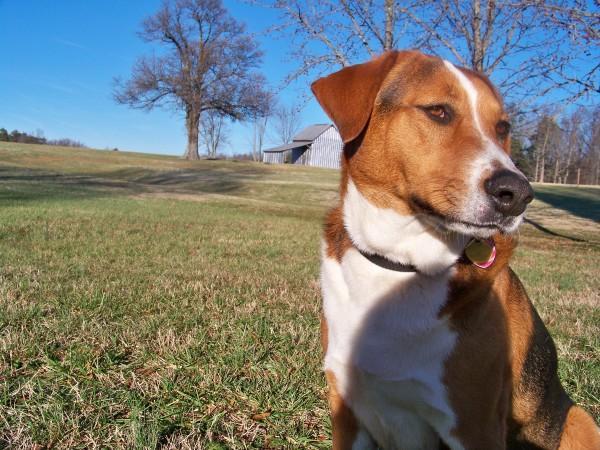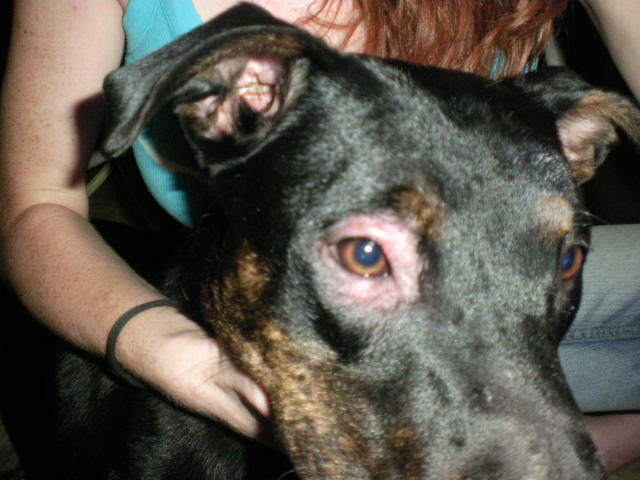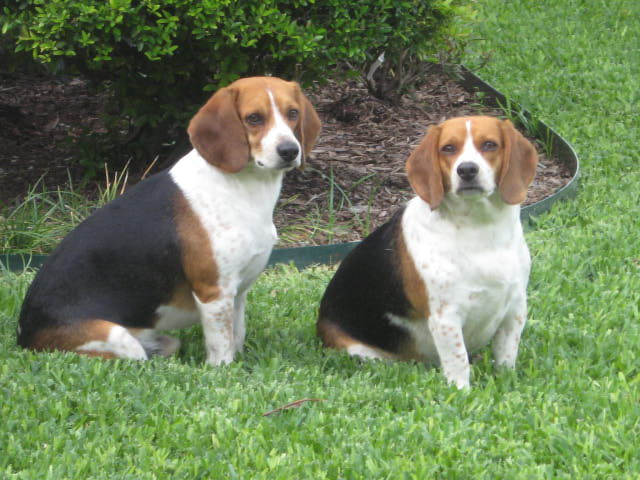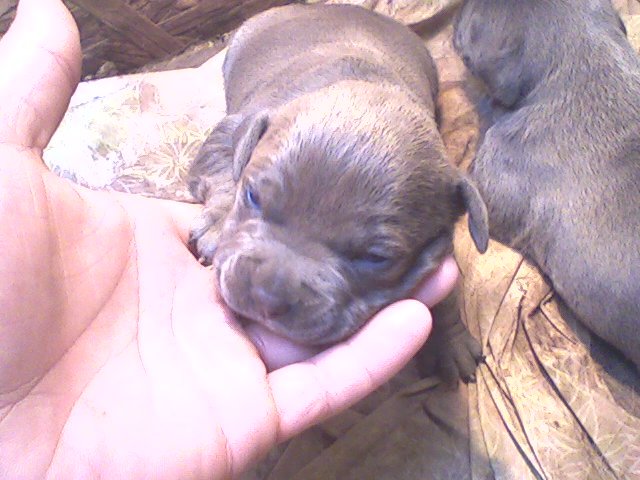QuestionWe had two huskies mom and daughter. Mom passed away about a year ago. We finally replaced her with with a 7 week old puppy. She is used to wrestling with her mother and they would head butt and bit at each others ears and necks. SHe is doing this to the puppy and it really scares me when she goes for her neck. I know Huskies go for the necks when they are trying to kill prey. Do you think she is being overly agressive, or are we over reacting. How do we overcome this.
AnswerHi Lynn,
It's not uncommon for a new puppy and adult dog to go through a period of adjustment before "the dust settles" and they can either bond, or at least coexist. This can take months, and it can't be rushed.
You didn't say how old your surviving adult dog is, but there probably is a great difference in her activity level compared to that of a seven week old puppy. Puppies usually pester adult dogs unmercifully. Before the age of four months, puppies may not recognize subtle body postures from adult dogs signaling that they've had enough, and that's when a pup can get hurt.
Puppies are fairly fragile, and even if your adult dog doesn't mean to hurt it, there is still the very real possibility that the puppy could get hurt. I do not think you're over reacting. You should not leave them alone together, and you should supervise them when you are home. If you can't supervise the dogs, then the puppy needs to be crated, something you'd probably do anyway since the puppy isn't housetrained yet.
Your adult dog might be jealous of the new puppy. Try to keep to her regular daily routine as much as possible. Both the puppy, and your older dog should have and one-on-one time with you each day, without the company of the other dog, as well as supervised play with each other and you.
When you and both dogs are playing, offer plenty of praise and treats for both dogs. Your older dog will soon learn that good times and the new puppy can go hand in hand.
It is important to support the dominant dog in your household, even if that turns out to be the new puppy. This may mean, for example, allowing the dominant dog to claim a favored sleeping spot as his or to have access to a desirable toy. Trying to impose your preference for which dog should be dominant can confuse the dogs and create further problems.
Punishing your older dog won't work, and could make things worse. Fortunately, most conflicts between dogs in the same family can be resolved with professional guidance. If things seem to be going badly, don't delay in contacting a dog behaviorist.
Best of luck,
Patti

 My dogs agression
Question
This is my dog
Hi Shelley!
I have a question f
My dogs agression
Question
This is my dog
Hi Shelley!
I have a question f
 7 month old blue healer mix (Cloe)
Question
cloes right eye
Cloe was having really bad eye
7 month old blue healer mix (Cloe)
Question
cloes right eye
Cloe was having really bad eye
 Dry Dog Foods
Question
Prince Duke & Princess
I have two B
Dry Dog Foods
Question
Prince Duke & Princess
I have two B
 Puppy help? does this look like a nice quality puppy?
Question
3 weeks old
im getting this blue nose puppy so
Puppy help? does this look like a nice quality puppy?
Question
3 weeks old
im getting this blue nose puppy so
 Temperature before birth
QuestionQUESTION: My female cheweenie is on day 52 of h
Temperature before birth
QuestionQUESTION: My female cheweenie is on day 52 of h